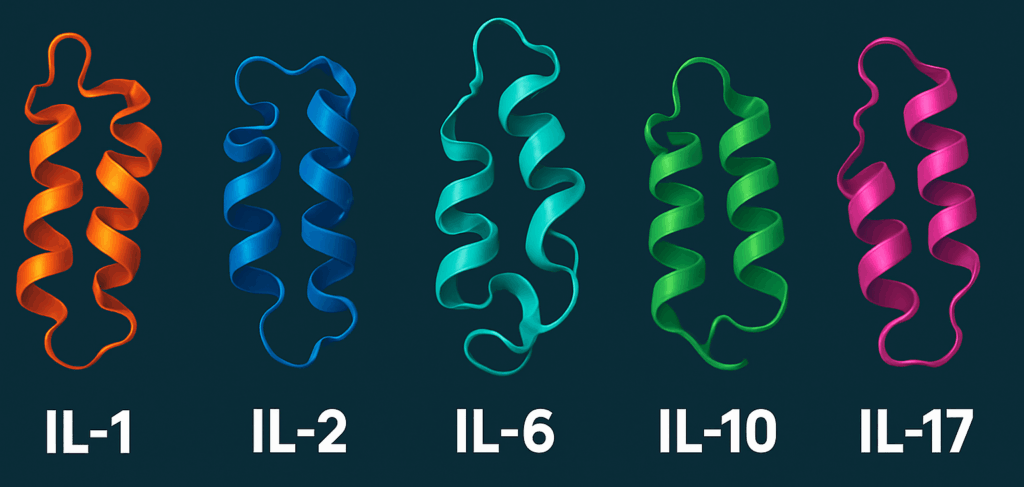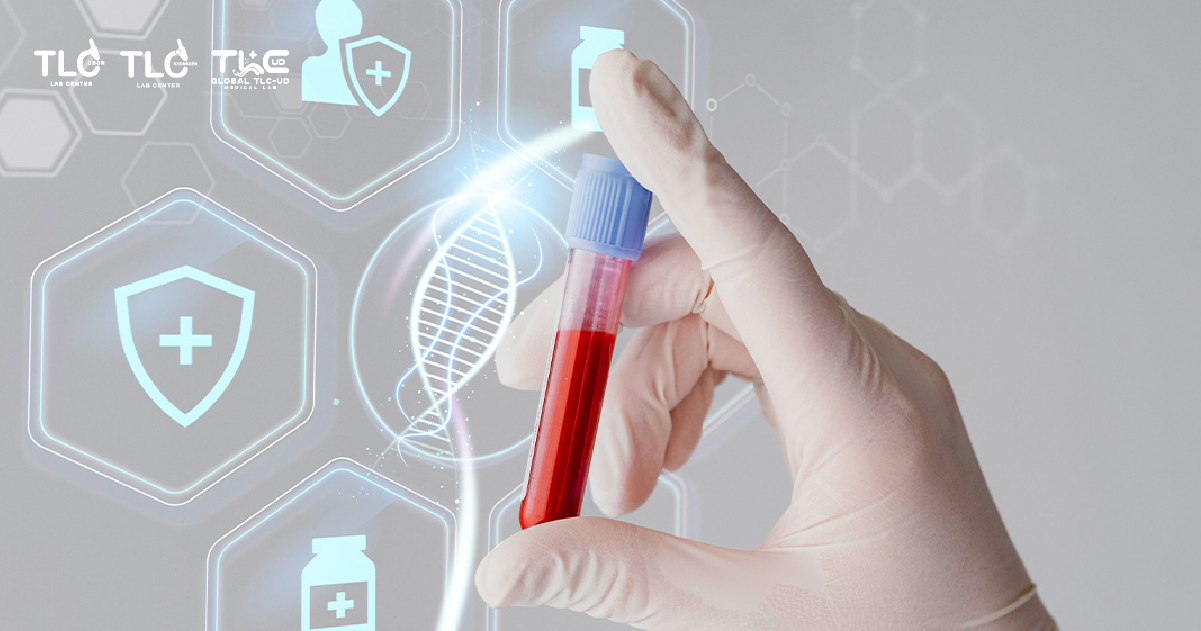What Are Interleukins?
Interleukins (ILs) are a group of signalling molecules known as cytokines, which play a crucial role in the immune system. Acting as messengers between white blood cells (leukocytes), they help coordinate the body’s defence mechanisms during infections, inflammation, and even certain types of cancer.
- Produced by: Various immune cells, including T cells, B cells, macrophages, and others
- Primary roles: Regulate the growth, activation, and development of immune cells; control inflammatory responses and immune reactions
- Varieties: Over 40 types of interleukins have been identified (e.g., IL-1, IL-2, IL-6, IL-10, IL-17), each with its own distinct function
Common Interleukins and Their Functions:
- IL-1, IL-6: Involved in acute inflammation and fever
- IL-2: Promotes the growth of T cells
- IL-10: Suppresses inflammation
- IL-17: Associated with autoimmune conditions and chronic inflammation
Why Test for Interleukins?
Interleukin testing isn’t part of routine health screenings, but it may be recommended in specific cases to provide deeper insight into immune function or disease activity. These include:
- Diagnosing and monitoring autoimmune diseases
(e.g., lupus, rheumatoid arthritis, inflammatory bowel disease) — certain interleukins rise during disease flare-ups - Assessing the severity of infections or inflammation
Elevated levels, particularly of IL-6, may indicate serious infections or systemic inflammation (such as sepsis or a cytokine storm seen in severe COVID-19) - Cancer diagnosis, prognosis, or disease monitoring
Blood cancers like lymphoma, leukaemia, or multiple myeloma can disrupt normal interleukin levels - Evaluating immune system deficiencies
In rare cases, tests can help determine whether the immune response is underactive or overactive - Clinical research and drug trials
Interleukin levels are often monitored in studies to better understand disease mechanisms and how patients respond to new treatments

Why Is This Important?
Abnormal interleukin levels can help:
- Detect disease flare-ups or progression
- Guide personalized treatment decisions
(e.g., modern therapies targeting specific interleukins, such as anti-IL-6 used for rheumatoid arthritis or severe COVID-19) - Monitor treatment effectiveness over time
However, these tests are typically ordered by medical specialists, as their interpretation requires a careful review of the broader clinical picture.
Laboratory Testing
Blood Test Available for:
- Interleukin-6 (IL-6)
Note: No fasting or dietary restrictions are required before the test.
References
- Dinarello, C. A. (2018). Overview of the interleukin-1 family in innate inflammation and acquired immunity. Immunological Reviews, 281(1), 8-27. [ onlinelibrary.wiley.com ]
- Akdis, M., & Akdis, C. A. (2021). Interleukins, from structure to function: a review.International Archives of Allergy and Immunology, 182(2), 71-80. [ karger.com ]
- Kishimoto, T. (2010). IL-6: from its discovery to clinical applications. International Immunology, 22(5), 347-352. [ academic.oup.com ]
- O’Shea, J. J., & Paul, W. E. (2010). Mechanisms underlying lineage commitment and plasticity of helper CD4+ T cells. Science, 327(5969), 1098-1102. [ science.org ]
















